- History & Values and worldview
- Language and communication patterns & Art and other expressive forms
- Norms and rules, lifestyle characteristics, relationship patterns, rituals
- The degree of assimilation or marginalization from mainstream society
- Health behavior and practices
- Differential approaches needed by health care professionals
- References
History & Values and worldview
History
- The discovery of America;
- European immigration to America;
- The Spanish;
- The English;
- The French;
- The Dutch;
- The Swedish;
- The German;
- The Scottish;
- The Irish.
Values and worldview
- Individualism;
- Free speech;
- Freedom of choice;
- Independence;
- Self-reliance;
- Confidence.
The history of European Americans roots back to time when first immigrants came to the American continent. Initially, the new land was expected to give profit. However, later, it became home for people who escaped their native countries because of religious and political prosecution (“European immigration,” 2017).
People who settled on American land shared similar values and worldview. Thus, they supported the principles of individualism, free speech, independence, confidence, openness, individual responsibility, etc. (Purnell, 2014).
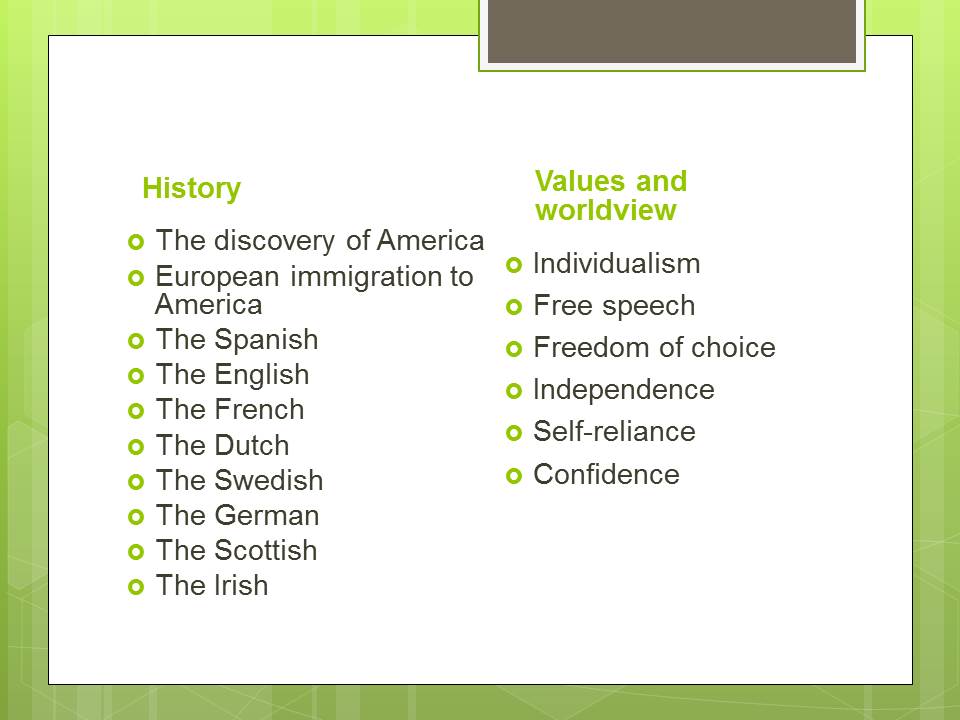
Language and communication patterns & Art and other expressive forms
Language and communication patterns
- Widely-spread English language;
- Voice louder compared to other cultures;
- Ready to share personal information;
- Direct eye contact;
- Orientation on future.
Art and other expressive forms
- Art traditions follow European patterns;
- The birth of mass culture;
- Assimilation of European traditions with Native American.
Although there is no official language in the United States, the majority of population including European Americans speak English. Other languages popular within this population group are Spanish, French, and German. European Americans tend to be expressive and more loud than other cultures. Another specific feature in communication is their openness and readiness to share personal information. An important communication peculiarity is that Americans expect to keep a direct eye contact to show they are attentive and interested.
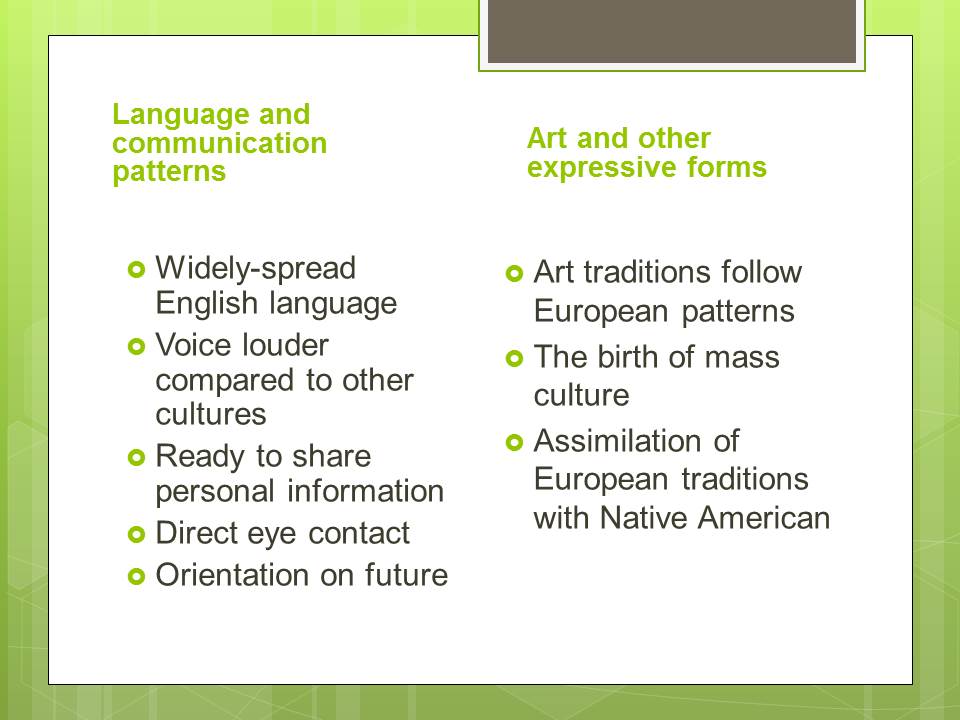
Norms and rules, lifestyle characteristics, relationship patterns, rituals
- Greeting someone for the first time with extending the right hand;
- Punctuality valued both in business and daily life;
- Common way to refer a person by the given name;
- Only close friends or relatives are expected to touch each other;
- Egalitarian family relationships;
- Children are great value;
- Highly encouraged autonomy in children and teenagers (Purnell, 2014).
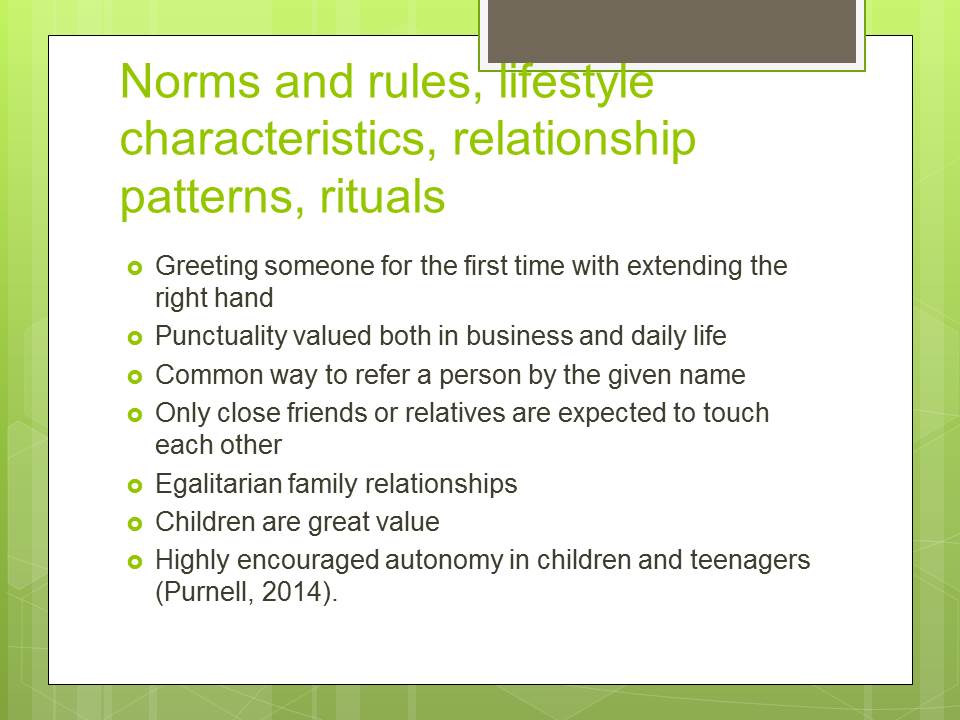
The degree of assimilation or marginalization from mainstream society
- High degree of assimilation;
- Identification as Americans disregarding ethnic roots;
- Development of European-American culture;
- Great impact of British cultural traditions;
- Development of specific popular quisine.
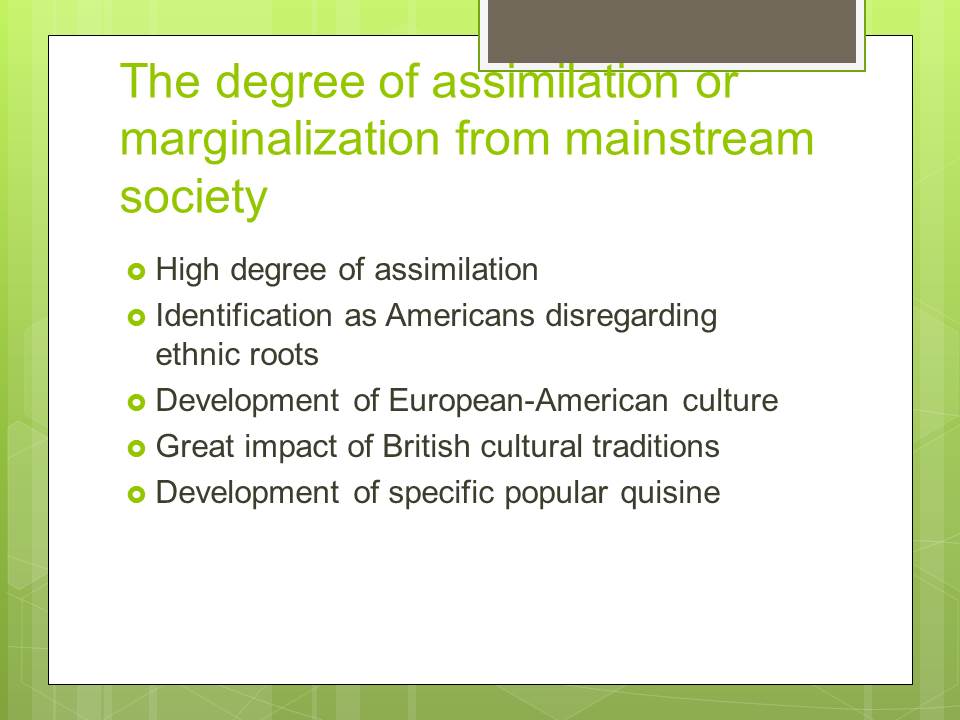
Health behavior and practices
- Focus on health promotion and wellness;
- Increase in personal responsibility;
- High treatment compliance;
- Support organ donation;
- Application of advanced directives;
- Interest in folk therapies;
- Successful rehabilitation of people with disabilities.
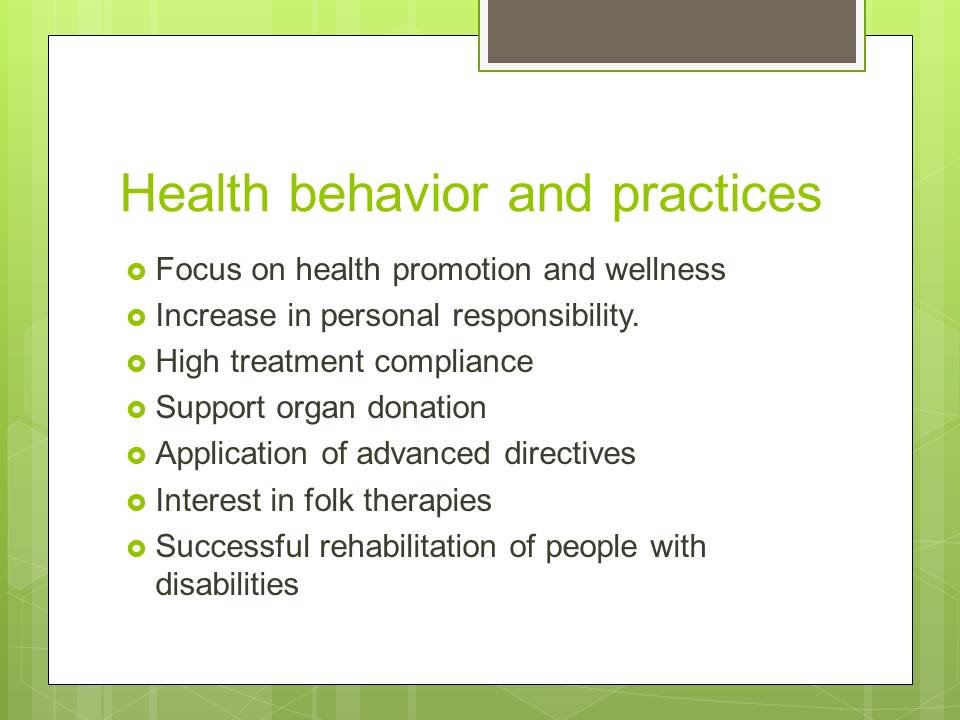
Differential approaches needed by health care professionals
- Great attention to privacy;
- Attention to low-touch culture;
- Importance of direct eye contact;
- Addressing people as Mr., Mrs., Miss, Ms., or another appropriate title on first meeting;
- Full disclosure of health information to the patient.
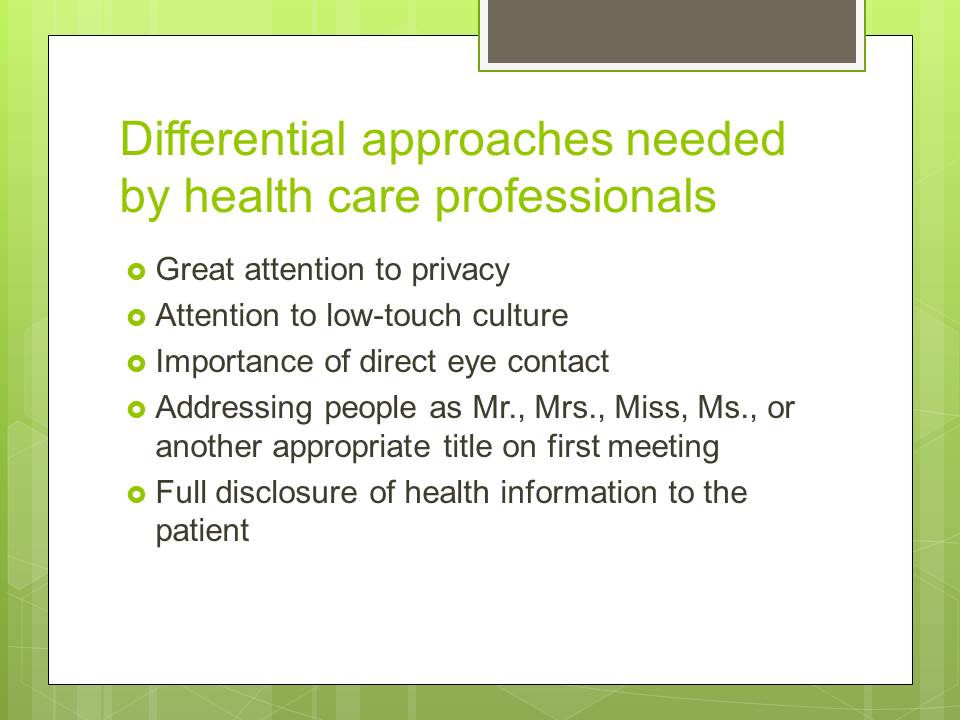
References
European Immigration. (2017). Web.
Purnell, L. D. (2014). Guide to culturally competent health care (3rd ed.). Philadelphia, PA: F.A. Davis Company.